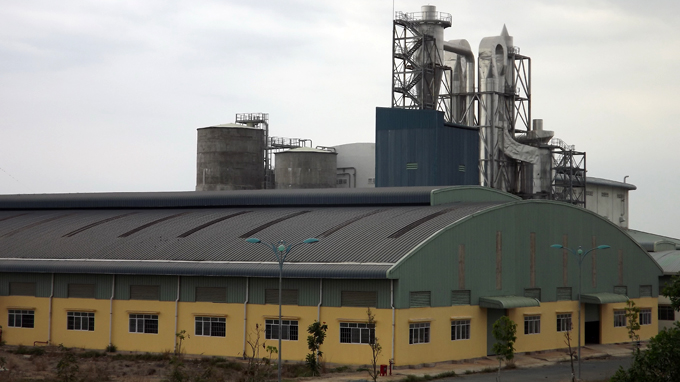Vietnamese Prime Minister Nguyen Tan Dung has ordered a stop to a multi-million-dollar pulp making plant in the southern province of Long An over its troubled operations, fueled by material disputes with local jute growers, the provincial People’s Committee announced Tuesday.
Phuong Nam pulp mill was constructed by Tracodi, a subsidiary of the Transport Ministry-run CIENCO 6, under a VND2 trillion (US$94.34 million) investment funded by the state budget.
The facility broke ground in March 2006 in Long An, around 60km west of Ho Chi Minh City, and was put into operation a year later at a capacity of producing 100,000 tons of paper pulp from jute plants per year.
But the mill had been producing well below its full capacity until 2009, when its operations were suspended for many reasons, including the conflicts with jute growers and machinery breakdowns.
The plant went back into service in 2012, with a new production line installed. Long An authorities also zoned 10,000 hectare land plots to grow jute plants to supply raw materials to the pulp mill.
But the new machinery repeatedly malfunctioned while the plant could only manage to source 1,000 hectares of jute plants for its production.
In 2013, when jute growers had already started their new crops, the plant operator abruptly announced that it would stop sourcing materials from them.
The Prime Minister has thus decided to pull the plug on the crippled factory, seven years after the troubles began.
The People’s Committee of Long An will have to cooperate with the Ministry of Industry and Trade and Ministry of Finance to work out a solution to sell or liquidate the facility and submit a report to the premier by the end of next month, Nguyen Thanh Nguyen, deputy chairman of the committee, said.
“In principle, we will try to find a suitable buyer for the plant to prevent waste,” Thanh said, adding the plant still plays a role of boosting agricultural economy in the province.
Losing confidence
It was hoped that the pulp mill would give a boost to the agricultural development in Long An, where most of the agricultural land is more suitable to grow jute plants than paddy.
In 2007 the province’s agriculture department launched a program encouraging growers to replace their paddy fields with jute plants to serve the Phuong Nam factory.
The area of jute plants thus jumped from 3,100 hectares to more than 10,000 hectares.
But the plant and jute growers got into a dispute in their very first transaction as farmers complained that their products were purchased at dirt cheap prices.
Despite intervention from authorities, the conflict remained unresolved as the pulp mill refused to increase purchase price.
“While the plant was expected to bring in economic benefits for the province, it turned out to be a wasteful investment while the farmer’s confidence was rocked,” said an official from the agriculture department.
Like us on Facebook or follow us on Twitter to get the latest news about Vietnam!






















































